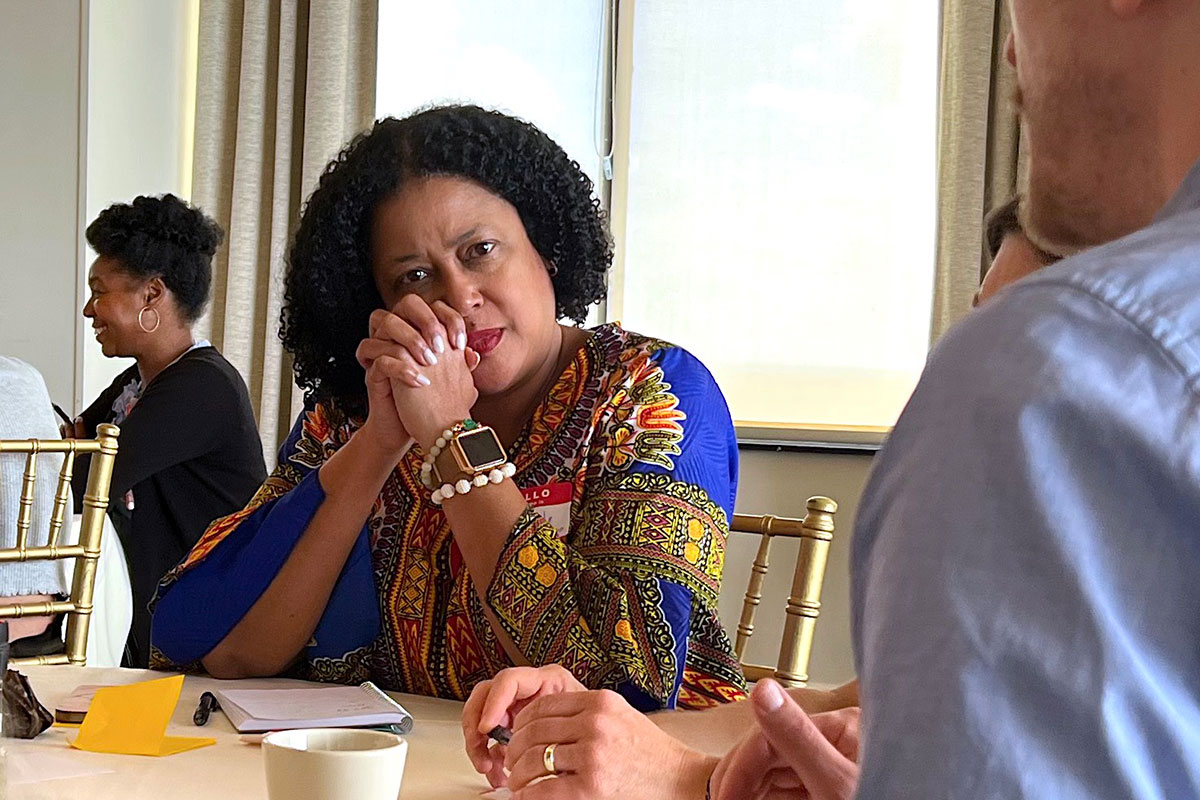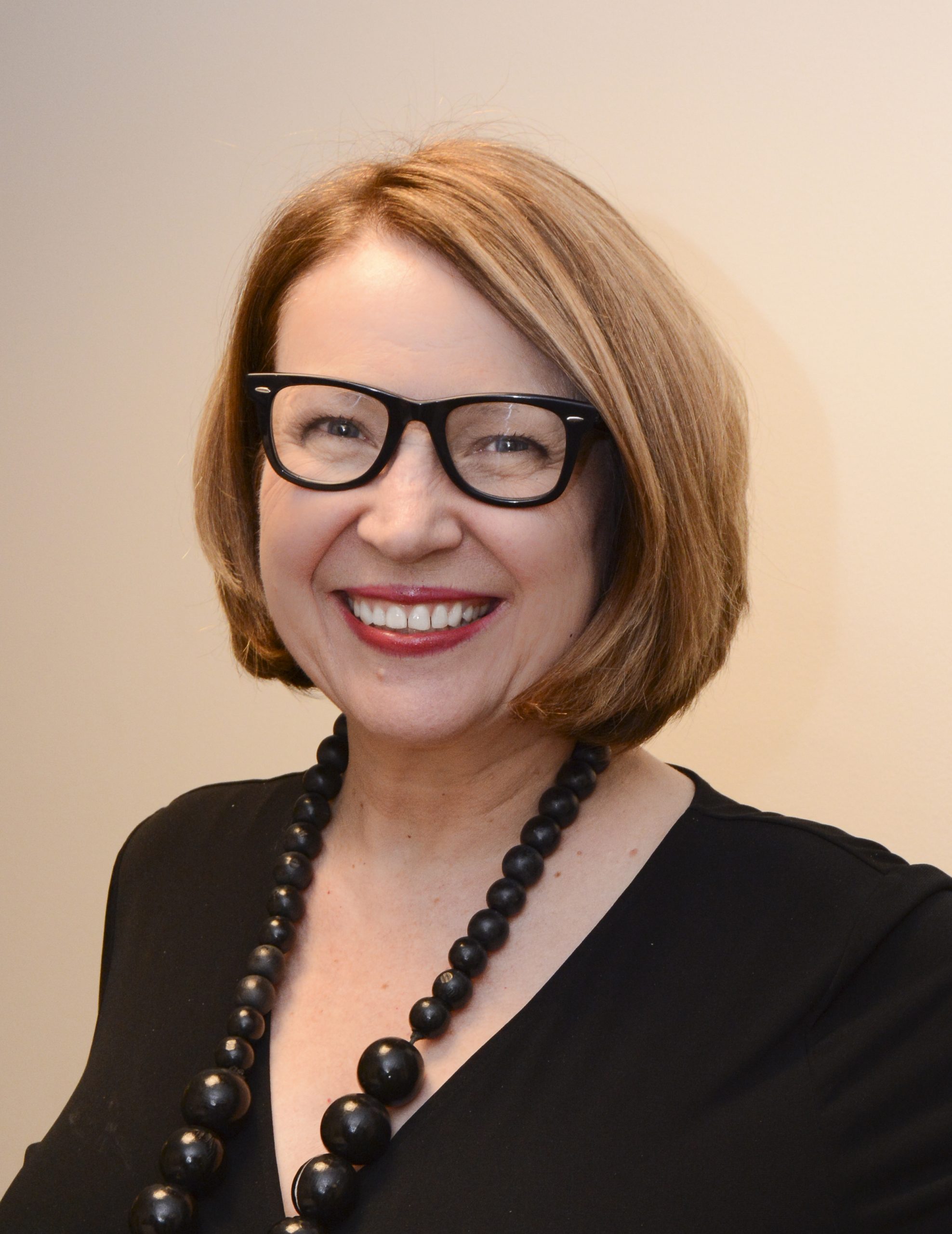A beautiful thing happened in downtown Jackson ast week. A group of leaders and team members from newsrooms in states across the Deep South came to our building, Capital Towers, on May 18 to talk about the future of journalism for local, independent media outlets.
LION Publishers had asked us to host the first Deep South Media Sustainability meetup months ago. I quickly suggested holding it in our building with our sweeping views of Mississippi’s capital city. Our newsroom is within walking distance to courthouses, City Hall, the Mississippi Capitol, the police and sheriff’s departments, restaurants and museums—the most central spot for news-gathering and confabs in our state that I can imagine.
The Jackson Free Press, and since 2022 the Mississippi Free Press, has been right here, investing in our city’s center, for nearly a decade of 21 years of Free Press journalism here, and we wouldn’t have it any other way. Our LION guests could even walk to Two Museums, where they toured the remarkable and essential Mississippi Civil Rights Museum before a Hal & Mal’s happy hour, where the LION team was surprised to learn the Free Press veggie burger is named for us!
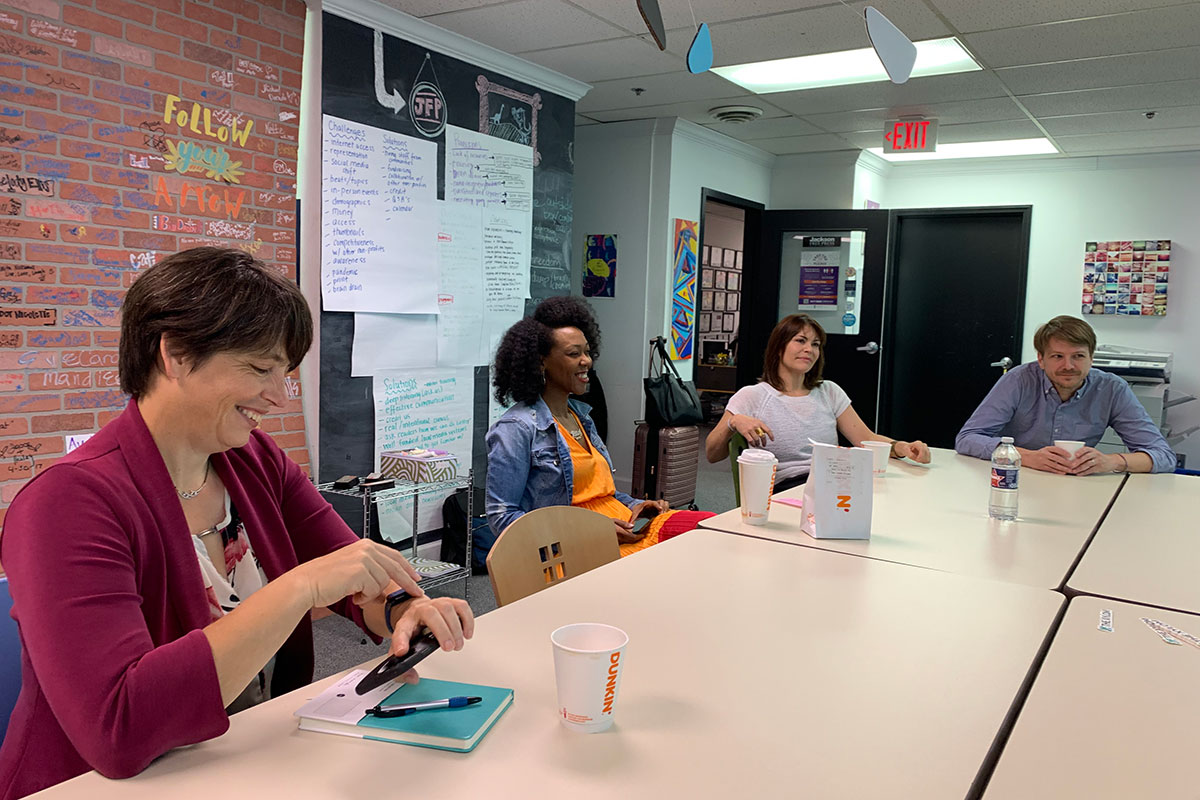
After many of the attendees first had coffee, donuts and fellowship in our newsroom on the 13th floor, we all headed upstairs to talk about sustainability challenges facing local journalism outlets as some close and many other local newsrooms, especially nonprofits, open and then must figure out how to grow and thrive.
Good journalism costs money. Some new newsrooms have huge funding and billionaire founders; others started with something like $50,000 (like the Mississippi Free Press did in March 2020) or far less as some of the attendees disclosed. There was even a lovely woman running an Arkansas outlet all by herself.
A Sticky Question of ‘Scale’
The key focus we had already decided on with LION and the co-host we suggested—the also women-founded MLK50 out of Memphis—was the question of “scale” that is causing debate and some degree of consternation throughout the journalism world right now as we industry leaders and founders discuss what a “roadmap” for journalism can look like. In short, there is a lot of debate over whether big philanthropists and funders should get together and pick “winners” and help them “scale” into much larger newsrooms rather than spreading the support around as much.
You might guess where Kimberly and I fall on that point.
It’s a debate that comes at a time when diversity, equity and inclusion are vitally held up as top goals in journalism—with needed calls and efforts for more diversity in newsrooms and support for it. But it can get cloudy fast, with at least some of the conversation leaders and decision makers seemingly from the old world where a fairly small handful of typically white men control newsrooms, their directions, industry strategy and who they’re willing to share even internal microphones with. They’re also the people most likely to have the networks to get them to the tables where early decisions are made and be called on first when the microphones are passed around.
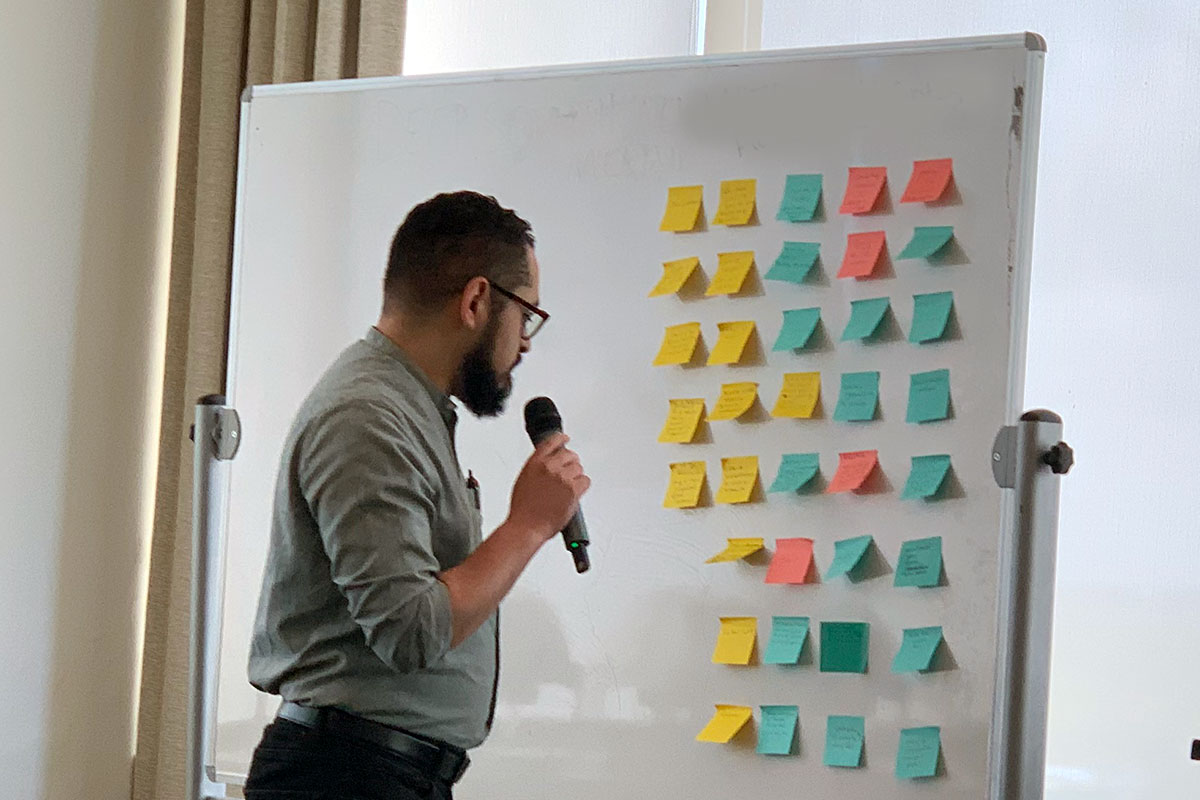
Usual suspects are also the least likely ones to be afraid that voicing dissension and concerns over “scaling” ideas and decisions may cost them jobs, likelihoods, support or an invitation to a maybe-important velvet-rope cocktail party at a journalism conference. (Yes, those parties exist now, which is jarring to those of us who have skipped multiple paychecks to avoid layoffs during tough times, as then-Publisher Todd Stauffer and I would do back at the Jackson Free Press. But, hey, we never laid anyone off in even the toughest times, which makes us proud.)
To be honest, like many rooms filled with power dynamics, a lot of women and media leaders who aren’t white men don’t say everything we’d like to in those meetings, and end up talking about it quietly in the bar afterward. And I expect all of us feel like that’s not how it should be in journalism, for God’s sake, where we all do this difficult work under fire in service of … truth-telling.
An Honest Conversations With A Few ‘Truth Bombs’
This LION event was different, thankfully, and probably my favorite journalism industry gathering of any size ever, and not just because I got to show off our cool offices, our hospitality skills and my home city. It was wonderful because it was honest; many marveled at what they called “truth bombs.” Oh, and because the strongest voices in the room this time were women running truly local outlets based in the cities where they live. And people listened to each other, as far as I could tell. All were heard. I hope.
We co-hosts—MFP Publisher Kimberly Griffin, MLK50 Chief Strategy Officer Andrea Faye Hart and I—spoke on a panel about how the industry could decide to re-think the idea of “scale” in a healthier way. We unpacked with joy and strength what that could look like and mean for traditionally ignored and media-harmed communities that both of our publications actively serve and listen deeply in.
I mentioned a conversation with an unnamed national funder recently about our “Mapping Mississippi” systemic-reporting model—building on our early “BWC Project” prototype—which she got really excited about, then mentioning that she was tired of hearing from wealthy media companies displaying so little passion for their work. “What if we could scale innovation and ideas?” I asked her and, this week, asked the Capital Club audience to grins and nods.
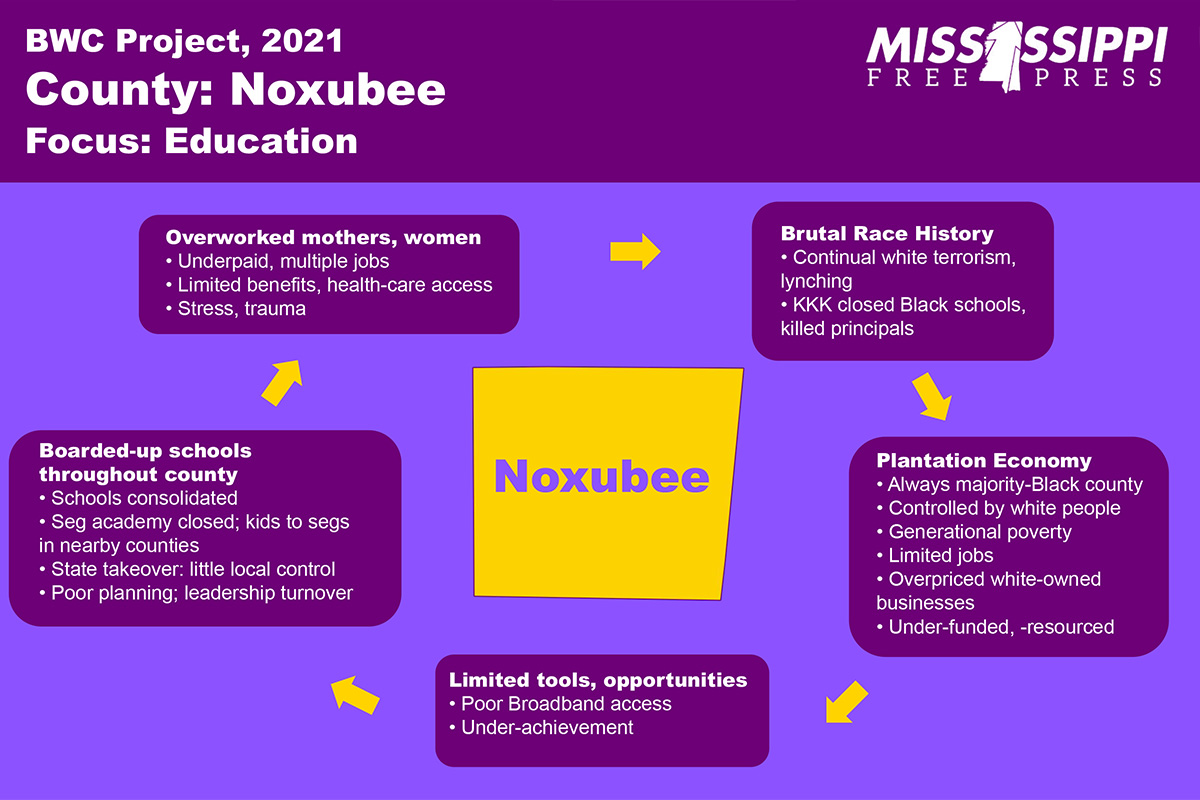
My attitude about scaling passionate innovation was in line with my co-panelists and that of many listening, of course. Why can’t we scale how to do journalism differently, build fantastic and abundant cultures that attract and retain amazing team members (like ours), and not use the same measures and even approaches to “winning”? Can’t we just mothball “scoops,” being “first” or the “only,” and the swagger of having the biggest pockets?
David vs. Goliath—Sadly
I can’t help but think of the Jackson Free Press as an undaunted David challenging and playing defense with a Goliath Gannett 17 years ago, especially when the mega-corporation tried to control our and local publishers’ distribution routes down to removing our boxes and racks and putting them into an open lot with newspapers still in them. We allied with other small local publications, brainstormed ideas, went public with what was happening, drew an editorial in Editor & Publisher magazine blasting the anti-competitive assault—and beat them.
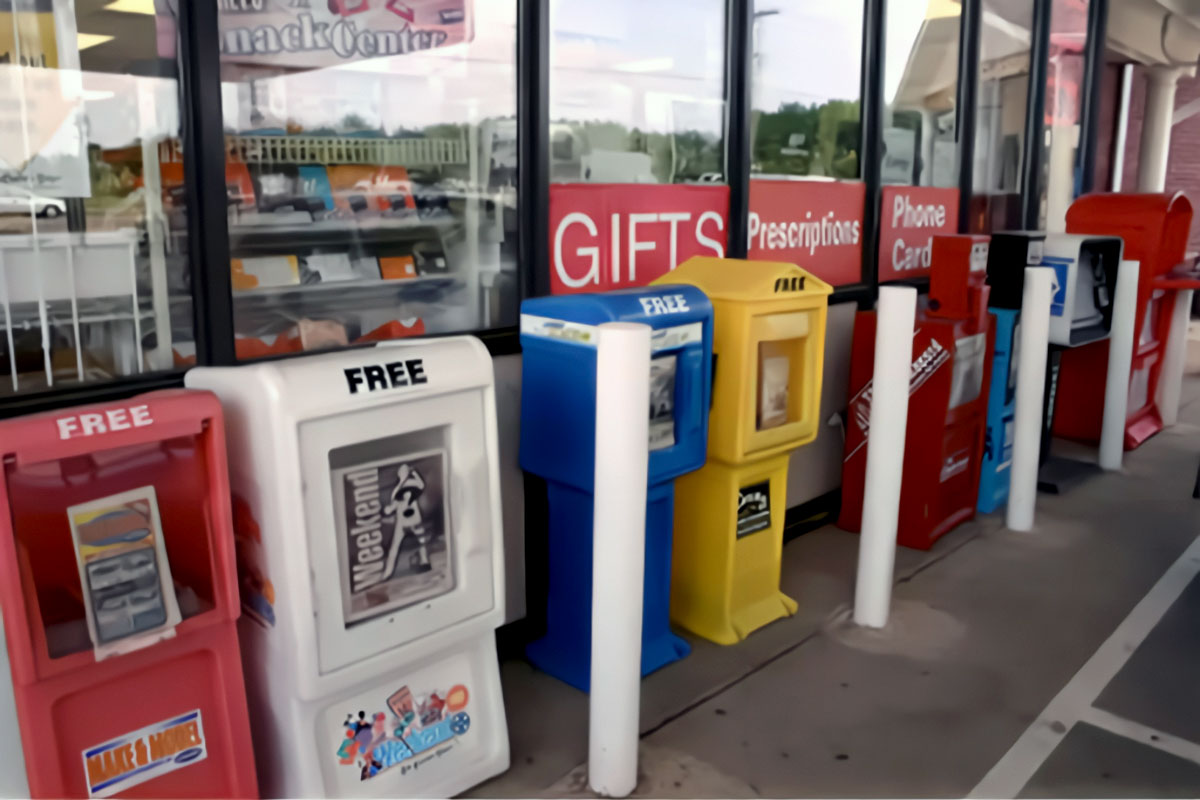
It was sad that we had to even spend our resources on that fight against anti-competitive practices—we prefer abundance and healthy collaboration—and it caused a lot of unneeded stress, but The Clarion-Ledger’s corporate owner thought this caper was worth their time. So we joined with other locals and fought back on behalf of local journalism.
But good newsrooms shouldn’t be scrapping for survival against corporate-y stunts in the 21st century. We need healthy and equitable ecosystems of journalism outlets in our communities working together and collaborating instead of trying to shut down “competition.” We sure don’t need one big mammoth outlet with too much power due to non-local backing basically controlling the destiny of little newsroom planets allowed to circle around them.
We’ve already seen the failures of mammoth news outlets with more money than God. It’s time for new, innovative and inclusive ideas.
‘The Humility of Smaller and Smaller Scale’
One of my favorite quotes from the meetup was Andrea quoting Adrienne Maree Brown:
I believe that community is always the answer.
I believe in the humility of smaller and smaller scale,
deeper and deeper changes—inch wide, mile deep.
Seriously, imagine a world where journalism is an inch wide, but a mile deep—or in statewide MFP’s case, 82 different inches wide while digging a mile deep into relationship-building and exposing/solving inequities in each of those counties. That means we’re on the ground, listening, finding the causes, reporting the solutions, connecting people across their counties to help each other much as newsrooms should work together as equals regardless of size.
There are many ways to measure and define impact, and most of the way it’s been done throughout journalism history is woefully inadequate and, let’s be honest, inequitable.
We talked about much more at the LION meetup, but the big thing was the truth-telling about, say, industry decisions being made without many of us invited into those rooms. We brainstormed about creating new, healthier and more inclusive tables by working together. We got real, and then more real, and it was like therapy for many in the room as we agreed via texts and at happy hour later.
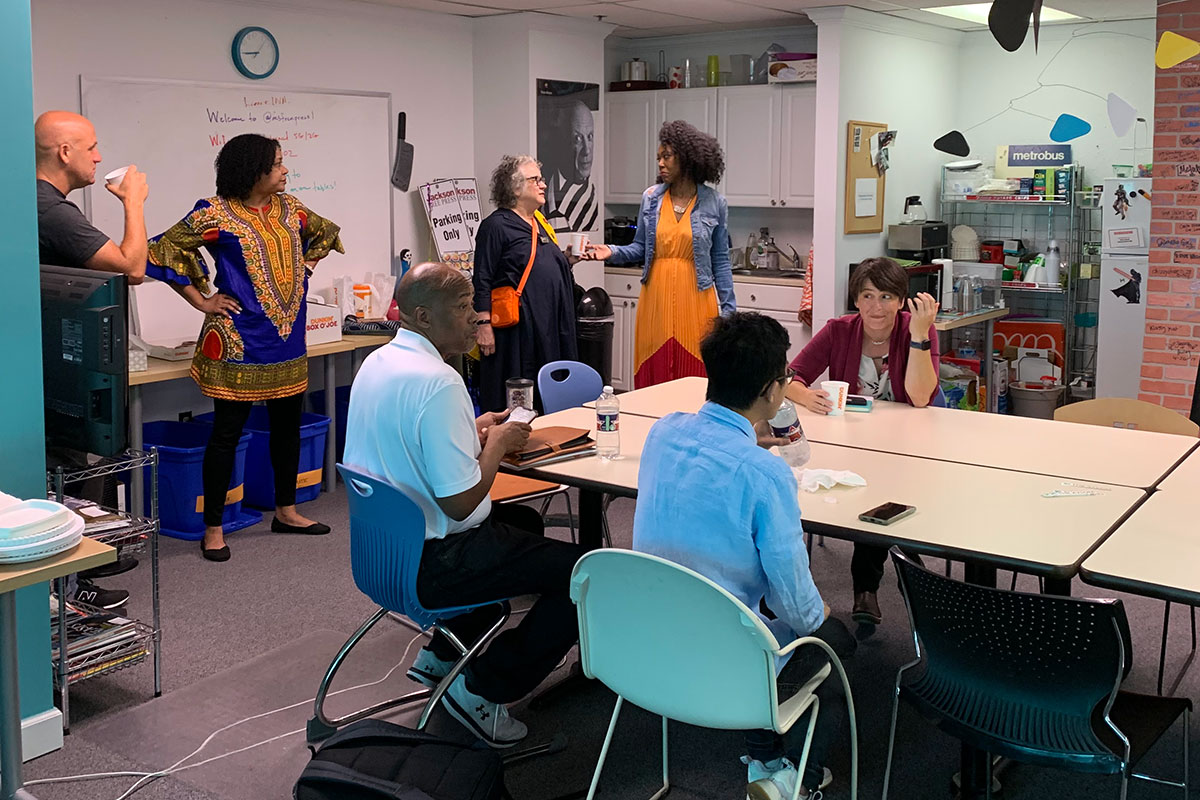
I will say this: Even if I can’t know what happens next and if this gathering will make a difference, I left this LION meetup happier and lighter than from other journalism gatherings (although I won country-music albums for the best comment at a recent Nashville local-media summit, and that was pretty dang cool, too). Being heard has that effect on people.
My biggest goal for new collaborations already forming via emails and texts today is to make sure we ask more of you about what you need from our media ecosystems beyond the basic journalism tenets of honesty, fairness, integrity and ethics. We know none of us should have to spend time cleaning up each others’ journalism messes, and it’s a distraction from serving our communities.
We want you in the local-media conversation, and we will give you more and more ways to be heard about ways we-the-media can better serve you. Thank you for continuing to support our work and growing our newsroom. Your gifts, by the way, are still doubled now at mfp.ms/donate. Please give what you can. We’ll use your funds well on the road to sustainability and healthy collaboration, we promise.
This MFP Voices essay does not necessarily represent the views of the Mississippi Journalism and Education Group, the Mississippi Free Press, its staff or board members. To submit an opinion for the MFP Voices section, send up to 1,200 words and sources fact-checking the included information to azia@mississippifreepress.org. We welcome a wide variety of viewpoints.

